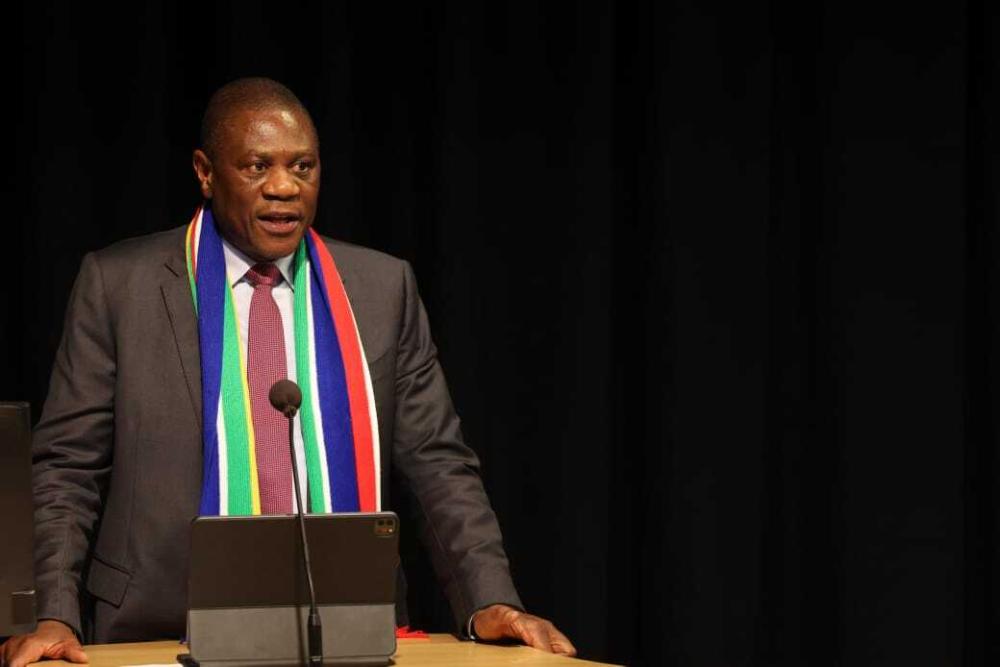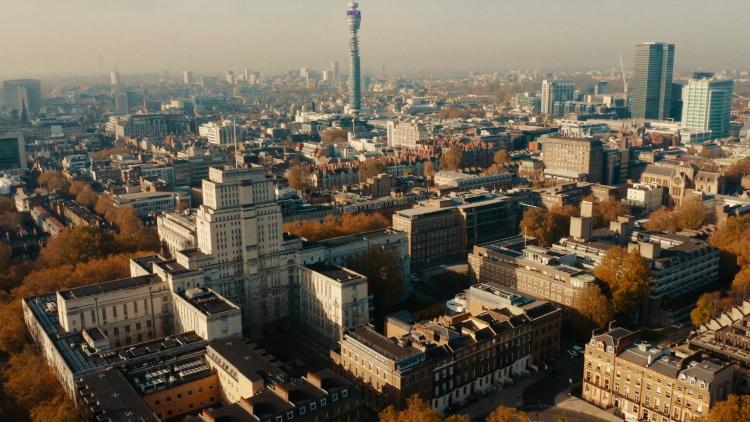South African G20 to centre Global South voices, says Deputy President

Deputy President Paul Mashatile set out South Africa’s plans for its 2025 presidency of the G20 Summit during an address at SOAS on 2 October. The event, held during his working visit to the UK, celebrated 30 years of democracy in South Africa and the country’s longstanding links with SOAS.
South Africa will assume the presidency of the G20 on 1 December, concluding a 4-year period in which the title has been consecutively held by countries in the Global South, beginning with Indonesia in 2022. This, said Mashatile, provided ‘a unique opportunity to bring to the fore the needs, aspirations and ambitions of developing countries’. South Africa intends to build upon this momentum in 2025, collaborating closely with the African Union to highlight the pressing issues faced by the continent’s rapidly expanding population.
We want our presidency of the G20 to be different, it must be action oriented. I want to prioritise the speed of execution – let’s get this done.
South Africa intends to focus on the Sustainable Development Goals in particular, examining the progress of previous G20 resolutions on issues such as growing inequality, rising hunger, the climate crisis and debt. Mashatile underlined the need for a focus on swift and effective implementation, “so that this forum, like others, does not become a talk show.”
Image credit: Elmond Jiyane | GCIS
In his address and following questions from the audience, Mashatile drew attention to the concerns held by African countries in relation to FDI and the need for local beneficiation in the mineral industry. He said: “We have become an extractive economy…If we are not vigilant, it is easy to be recolonised. We don’t want to remove the colonisation from the West, and see it come from the East. We want to work as equal partners, but most of all, we want development.”
He pointed out the impact of debt on many African countries’ agency in FDI negotiations, calling for stronger multilateral coordination on debt and placing institutional reform firmly on the agenda for G20 2025. Institutions such as the UN, the IMF and the World Bank have not, he said, “kept pace with changing global landscapes”, leading to a lack of inclusion and participation by developing economies.
My message, always: the wars must end. Let’s resolve our differences through negotiations, let’s commit to peace.
As the world reckons with a rapidly changing climate, South Africa will use its G20 presidency to advocate for funding for a just transition in the Global South. At present, less than 4% of green finance flows to the Global South, whose citizens and economies are disproportionately affected by the climate crisis. During his visit, Mashatile raised this concern to Secretary of State for Energy Security and Net Zero, Ed Miliband, to assurances of support from the UK. However, Mashatile emphasized the need for this to materialize in real terms. “The UK has promised support, but we must see that support, it must come.”
Finally, Mashatile addressed the ongoing conflict in Africa and the Middle East, calling for world leaders to work for a lasting peace. “My message, always: the wars must end. Let’s resolve our differences through negotiations, let’s commit to peace.”


